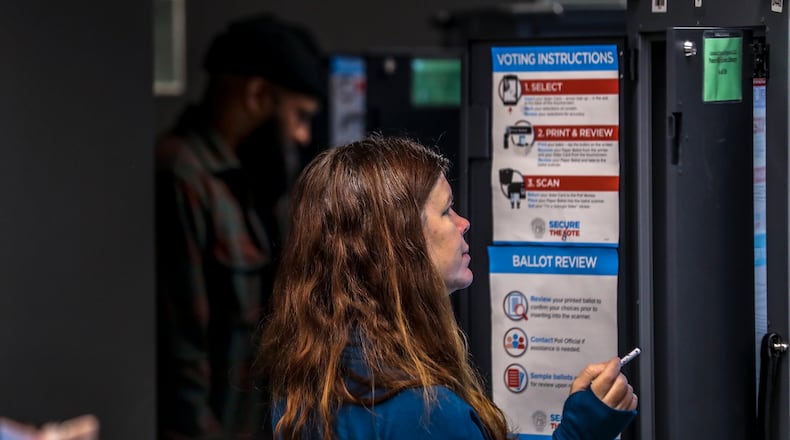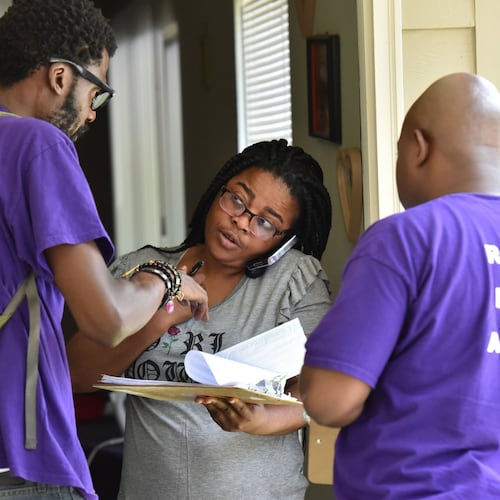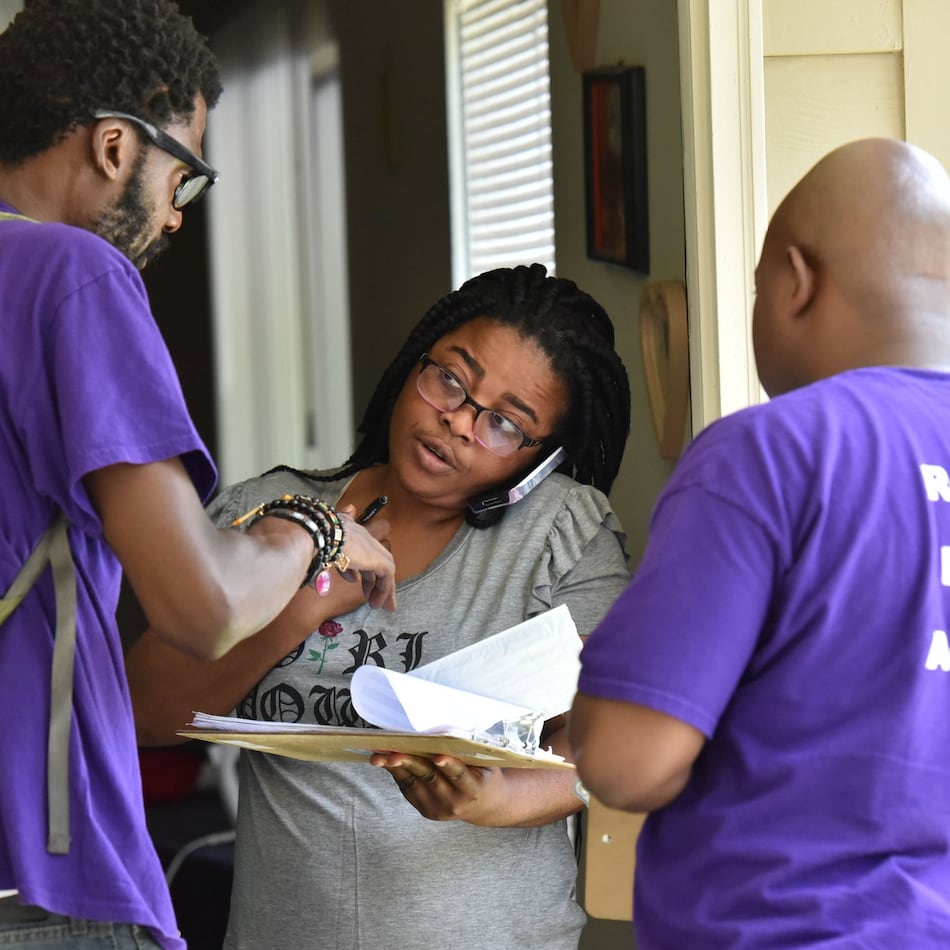Election Day is expected to bring high turnout to over 2,400 polling places across Georgia, where voters will cast ballots on touchscreens that print out ballots.
Then results will begin to pour in soon after polls close at 7 p.m. Tuesday.
Voters submitted questions about the election to The Atlanta Journal-Constitution, and here are answers from Mark Niesse, who covers elections, democracy and voting rights.
Q: Can I see side-by-side comparison of the positions of the people running for office? There are also four questions on the ballot, but I haven’t seen anything that explains the nuances of the amendments.
A: A summary of candidates’ positions on issues including the economy, crime, abortion and the role of government is available through a voter guide published by the AJC and the Atlanta Civic Circle. The voter guide can be found online at www.ajc.com/voter-guide.
There are also four statewide questions on the ballot covering two amendments to the Georgia Constitution and two changes to state laws. These ballot questions deal with whether indicted elected officials should continue to receive a paycheck, tax relief after natural disasters, a tax break for timber production, and a tax benefit for family-owned farms.
Voters can view sample ballots and voting locations through the state’s My Voter Page at mvp.sos.ga.gov.
Credit: Miguel Martinez
Credit: Miguel Martinez
Q: How can we be assured that the Dominion Voting Systems machines are not being manipulated through the software?
A: Voters can do their part to assure their ballots are correct by taking time to double-check that their printed-out ballots accurately reflect their choices.
Then, election officials will conduct a manual audit of one statewide election starting Nov. 17. Secretary of State Brad Raffensperger will decide which race to audit.
Auditors will review a sample of ballots in each county to check whether the choices on printed-out ballots match results tabulated by scanning machines.
Critics of the audit process say it won’t truly verify the outcomes of the election because, according to a state study, half of voters don’t look at their ballots for at least one second, introducing the possibility that problems would go undetected.
Digital images of ballots become public records in Georgia after results are certified, allowing anyone to count ballots for themselves.
There’s no evidence that Georgia’s voting machines have been tampered with during an election. In Coffee County, computer analysts copied election data and software after the 2020 election.
Q: When does a vote not count?
A: The moment a ballot is accepted by a scanning machine, it has been recorded and will be counted.
But there are times when a ballot never reaches that point.
Voters whose registration information or eligibility is in doubt might be required to cast provisional ballots, which are counted if voter qualifications are verified before results are certified.
When absentee ballots are rejected because ID information is missing or incorrect, voters are mailed documents to correct problems, allowing their ballots to be counted if the issue is fixed by Nov. 14.
In-person voters on Election Day must cast their ballots at their assigned neighborhood precinct locations, which can be found on the state’s My Voter Page.
Under Georgia’s voting law passed last year, provisional ballots cast in the wrong precinct will only be counted if they were cast after 5 p.m. on Election Day, when voters have little time to drive to their local precincts.
Q: If there are runoffs, can I still vote if I don’t vote in Tuesday’s election? What is the registration deadline for runoffs?
A: Voters are able to participate in Georgia runoffs even if they don’t cast a ballot in the original election.
State law requires runoffs when no candidate receives over 50% of the vote, which can occur in races with Democratic, Libertarian and Republican candidates. According to last year’s voting law, runoffs would be held four weeks after Election Day, on Dec. 6. Previously, runoffs were scheduled nine weeks after Election Day.
The voter registration deadline for federal runoffs was Monday, Nov. 7, and the registration deadline for state-level runoffs was Oct. 11.
About the Author
Keep Reading
The Latest
Featured





